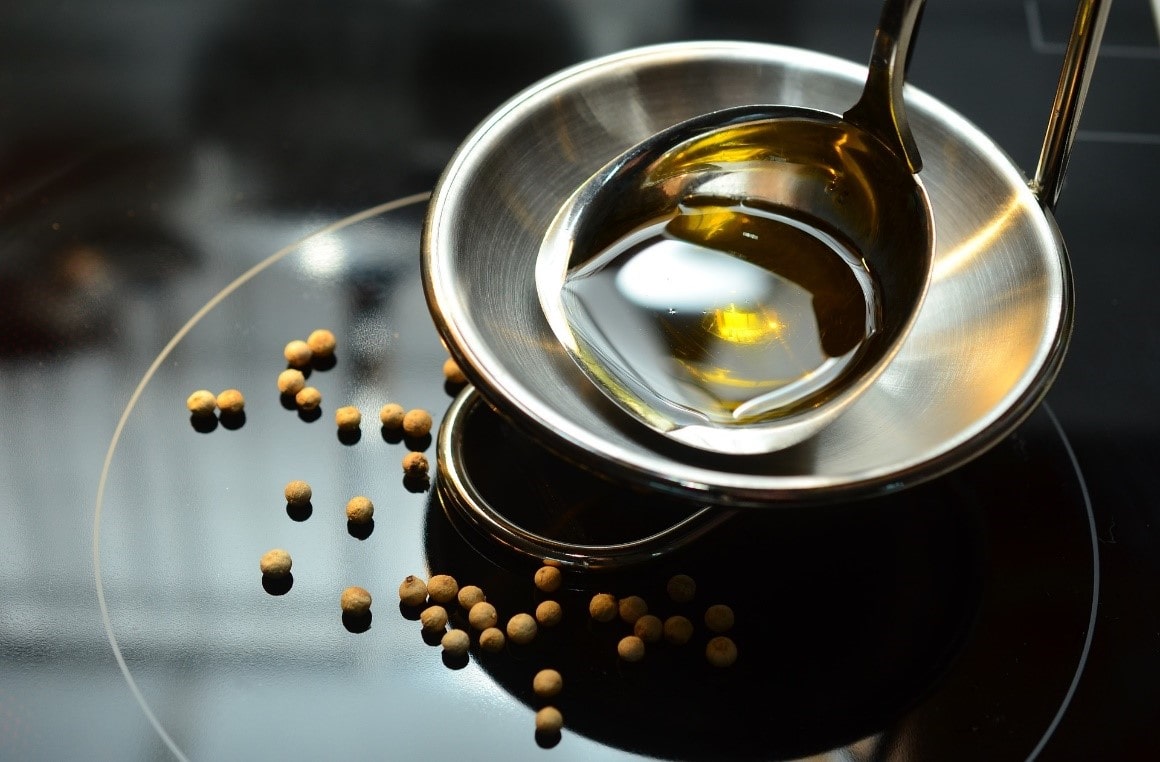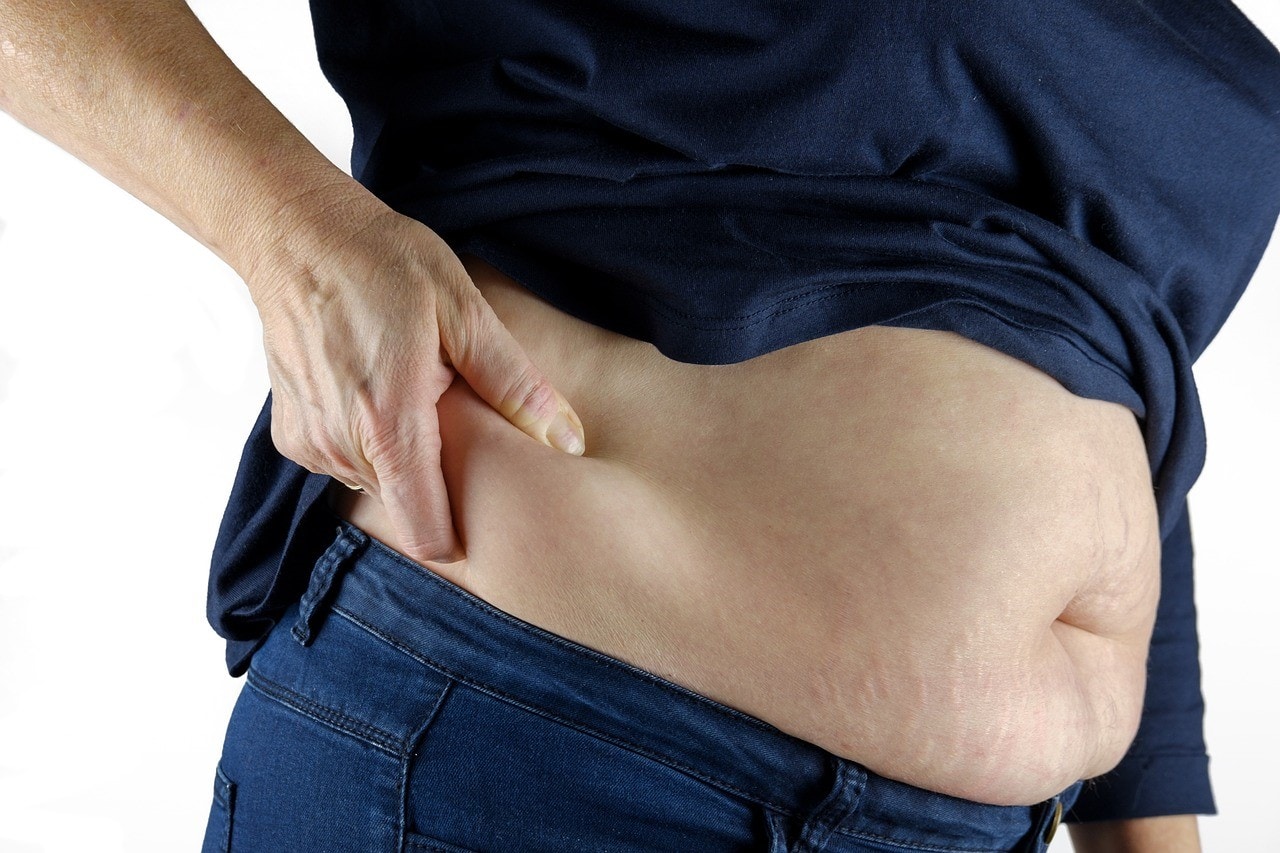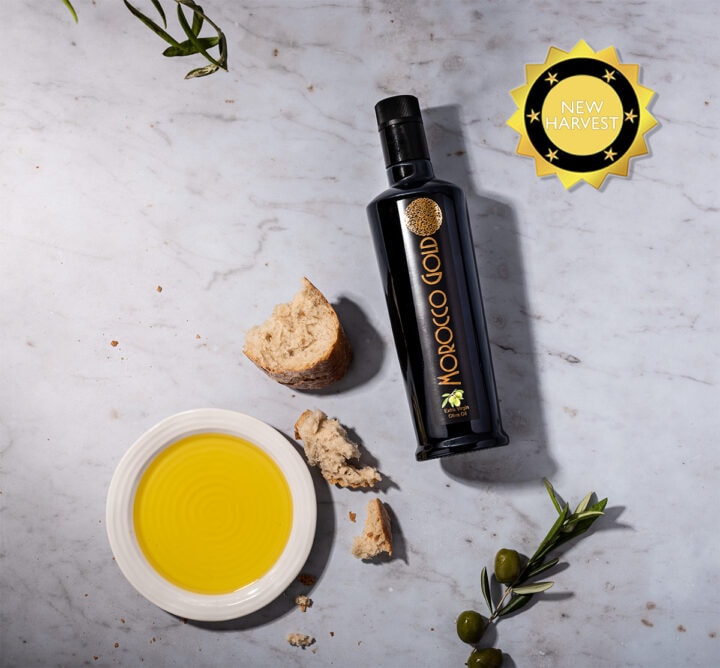How the best olive oil like Morocco Gold extra virgin olive oil, rich in polyphenols can help to strengthen your immune system.
Updated March 3rd 2023
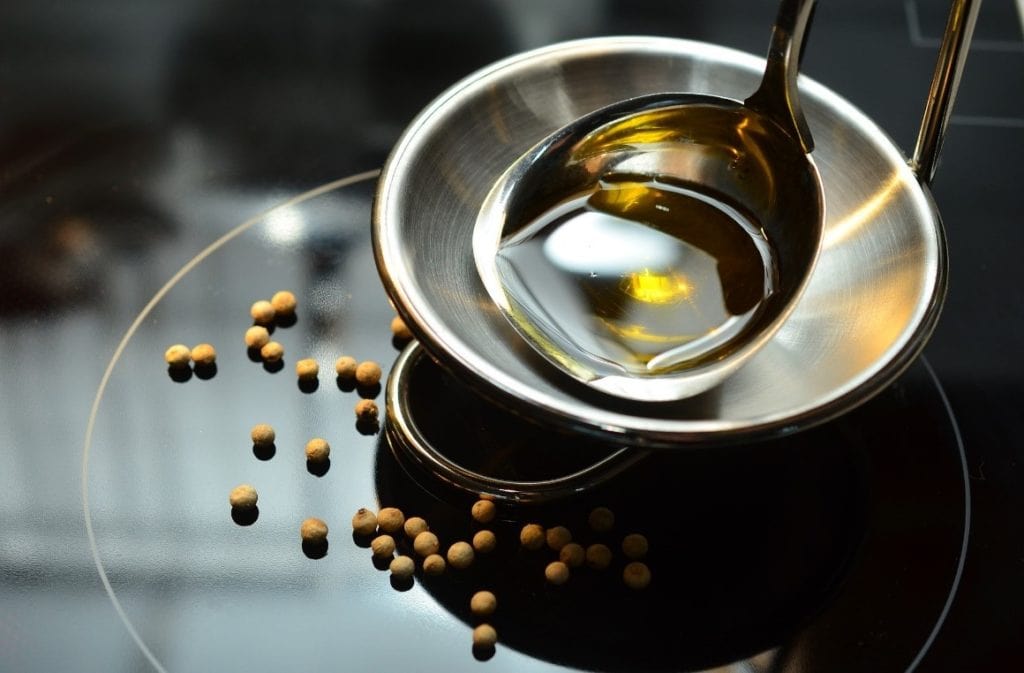
SUMMARY
- Extra virgin olive oil is widely known as one of the best sources of nutrition for a healthy diet, and now research shows that it could also help to boost your immune system.
- Specifically, extra virgin olive oil like Morocco Gold is considered to be the best olive oil you can purchase. This is due to its high content of polyphenols which are powerful antioxidants known to help strengthen and protect the body from infectious agents.
- Scientific studies have proven that extra virgin olive oil with a high content of polyphenols helps to improve immunity by activating the body’s main defence structure.
- It also helps combat inflammation, bacteria and free radicals which can damage cells and weaken immunity. Thanks to its many antioxidants, extra virgin olive oil is an ideal choice for supporting your immune system as it provides unparalleled protection against infection-causing agents.
- Regularly consuming extra virgin olive oil has also been linked to improved cardiovascular health, plus a lower risk of autoimmune and chronic diseases associated with low immunity.
- Overall, extra virgin olive oil like Morocco Gold can provide numerous health benefits that even extend beyond those related specifically to developing a stronger immune system.
CONTENTS
- Studies Show The Positive Effects Of Extra Virgin Olive Oil On Your Immune Response
- Extra Virgin Olive Oil Has Anti-Inflammatory Properties
- Extra Virgin Olive Oil Can Aid Disease Prevention
- The Role of Polyphenols in Boosting Our Immune System
- 8 Steps to Help Support a Healthy Immune System
1/ Studies show the positive effects of Extra Virgin Olive Oil on your immune response
Over the last year, the role of our immune system has been front of mind for most people but did you know that Extra Virgin Olive Oil is one of the best foods for boosting your body’s immune response?
Extra Virgin Olive Oil has high amounts of vitamins including vitamin E and K, and – crucially – is packed full of antioxidants to protect the body from oxygen-free radicals and help you fight off infection. It does this in two main ways:
2/ Extra Virgin Olive Oil has anti-inflammatory properties
Due to the high levels of oleocanthal that are contained in Extra Virgin Olive Oil, it has been shown to perform similarly to anti-inflammatory medications like ibuprofen. Studies have shown that just four teaspoons of olive oil daily could help your body to combat conditions like arthritis, autoimmune diseases and even allergies. But, while Extra Virgin Olive Oil and Ibrufen have the same effect on treating inflammation, they have different effects on the body.
3/ Extra Virgin Olive Oil can aid disease prevention
Another component of Extra Virgin Olive Oil that is known to have hugely beneficial properties is oleic acid which has shown the ability to destroy certain breast cancer genes. In one recent study, researchers found that oleic acid can weaken a cancer gene found in 25 to 30 percent of all breast cancers. It can also help you to manage diabetes and many cardiac conditions. Researchers have found that a Mediterranean diet with either extra virgin olive oil or mixed nuts can significantly reduce the incidence of cardiovascular disease.
Recent global health events have led many of us to delve deeper into the science behind protecting our bodies from infection and there is an abundance of research to help us find the answers. And, with people spending more time than ever preparing meals for the whole family at home, we want to understand how our dietary choices can affect our overall health.
And, in the case of Extra Virgin Olive Oil, it really is worth your time and research.
Consuming plenty of nutrients as part of a varied and balance diet is essential for the health and function of all cells, including immune cells.
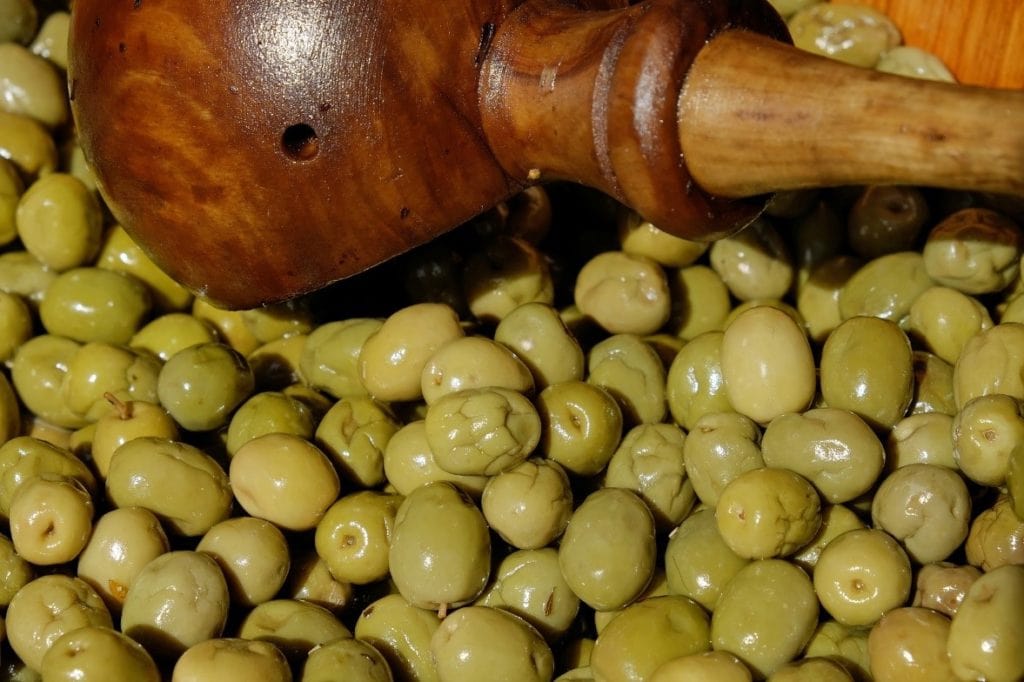
Infections or infectious diseases are caused by viruses, bacteria, parasites, fungi and various other disease-causing agents. Once an infection is contracted, the human body relies on the immune system to fight the infection through a range of cellular, inflammatory, and immune reactions. Although there are medications to treat infection, naturally derived food sources such as EVOO also show promise in preventing and treating infection also.
Early in vitro studies showed that several polyphenols in EVOO have antibacterial properties against human pathogens, particularly oleuropein, tyrosol, and hydroxytyrosol. In a 5 minute room temperature test, hydroxytyrosol, and tyrosol decreased the activity of Listeria monocytogenes, the bacteria contracted from contaminated food that causes the bacterial infection known as Listeriosis.
Decarboxymethyl elenolic acid (EDA), p‑HPEA-EDA, and 3,4‑DHPEA-EDA have been shown to have greater antimicrobial activity than the commercial disinfectants glutaraldehyde and ortho-phthalaldehyde. The phenolic compound oleocanthal has been shown to inhibit the growth of Helicobacter pylori bacteria, a bacteria associated with peptic ulcer and gastric cancer development.
Hydroxytyrosol and oleuropein have been shown to have antiviral activity in a dose-dependent manner. They were shown to inhibit the main viral fusing protein in human immunodeficiency virus (HIV)-1 target cells. Hydroxytyrosol has been shown to disrupt the influenza virus. Oleuropein has been shown to have anti-hepatitis B activity.
In recent times, researchers have begun to understand the role of intestinal microorganisms (gut microbes) in the overall health of the immune system. Therefore, protection against the growth of certain microorganisms can help in the treatment of some infectious diseases.
A study, published in Journal of Nutritional Biochemistry, 2016, established that changes in gut microbes in subjects with metabolic syndrome had immune enhancing effects. The authors concluding that “the consumption of a Mediterranean diet, including extra virgin olive oil increased the abundance of the Bacteroides genus member B. thetaiotaomicron and F. prausnitzii, which suggest that the consumption of this diet may increase or maintain a microbiota with anti-inflammatory capability.”
Fatty acids, also known as dietary lipids, are also involved in the modulation of the immune system and inflammatory processes. Oleuropein aglycone inhibits the proinflammatory molecule TNF‑a. Hydroxytyrosol has been shown to reduce TNF‑a and interleukin‑1 beta with promising effects on other key proinflammatory molecules. Tyrosol has been shown to inhibit COX‑2. And oleocanthal has extensive research surrounding its anti-inflammatory benefits for preventing and treating various health conditions.
A randomized, single-blinded study in Nutrition & Metabolism, 2015, aimed to determine the effect on immune responses when replacing oils in a typical American diet with extra virgin olive oil for a 3 month period. Forty-one obese or overweight subjects were randomized to extra virgin olive oil or a mixture of corn, soybean oil and butter (CON). The extra virgin olive oil group saw decreases in blood pressure, increases in HDL cholesterol levels, and in direct relation to the immune system, increased anti-CD3/anti-CD28 stimulated T cell proliferation, showing clear immunological health benefits.
Overall, the results of both in vitro and in vivo studies show that extra virgin olive oil is beneficial for various infections and infectious diseases. Best of all, it’s a natural food source that is readily available to everyone and comes with no side effects.
4/ The Role of Polyphenols in Boosting Our Immune System
A recent study by researchers at the National Research Council’s Institute of Food Sciences and the University of Salerno has shown that polyphenols from three different olive oil varieties have an inhibitory effect against several bacterial strains.
The tests were performed using 2.5 and 4.9 micrograms of the three polyphenol extracts against different pathogens. The results showed that the minimum concentration necessary to inhibit the growth of the pathogenic tester strains was low for all the polyphenolic extracts. This confirmed their general capacity to inhibit the growth of pathogenic or unwanted microorganisms.
In particular, all three extracts were effective in inhibiting the growth of Escherichia coli, a bacterium that is one of the causes of urinary tract infections. The three extracts also were found to be capable of inhibiting the growth of Pseudomonas Aeruginosa, a well-known pathogen that is responsible for the formation of biofilms.
Biofilms are densely packed communities of microbial cells that grow on living or inert surfaces and surround themselves with secreted polymers. Because the protective shell can keep out potential treatments, biofilms are at their most dangerous when they invade human cells or form on sutures and catheters used in surgeries. In American hospitals alone, thousands of deaths are attributed to biofilm-related surgical site infections and urinary tract infections.
“They gave us remarkable results in terms of their activity against pathogenic species, namely those that are responsible for the formation of biofilms. This could be a basis of complementary studies to formulate ideal drugs of natural origin, composed of optimal mixtures of polyphenols, which are able to exercise with the minimum effort, in terms of quantity, and the maximum result, namely against the greatest number of pathogens, their antibacterial efficacy,”
Filomena Nazzaro, senior scientist at the National Research Council’s Institute of Food Sciences, Italy
Source: NCBI
5/ 8 Steps to Help Support a Healthy Immune System
With all this science to get to grips with, it’s worth remembering that sticking to just a few basic guidelines can help you fight off disease and infection.
- Eat a balanced diet with whole fruits, vegetables, lean proteins, whole grains, and plenty of water. A Mediterranean Diet is one option that includes these types of foods.
- If a balanced diet is not readily accessible, taking a multivitamin containing the RDA for several nutrients may be used.
- Don’t smoke (or stop smoking if you do).
- Drink alcohol in moderation.
- Perform moderate regular exercise.
- Aim for 7-9 hours of sleep nightly. Try to keep a sleep schedule, waking up and going to bed around the same time each day. Our body clock, or circadian rhythm, regulates feelings of sleepiness and wakefulness, so having a consistent sleep schedule maintains a balanced circadian rhythm so that we can enter deeper, more restful sleep.
- Aim to manage stress. This is easier said than done, but try to find some healthy strategies that work well for you and your lifestyle—whether that be exercise, meditation, a particular hobby, or talking to a trusted friend. Another tip is to practice regular, conscious breathing throughout the day and when feelings of stress arise. It doesn’t have to be long—even a few breaths can help. If you’d like some guidance, try this short mindful breathing exercise.
- Wash hands throughout the day: when coming in from outdoors, before and after preparing and eating food, after using the toilet, after coughing or blowing your nose.

